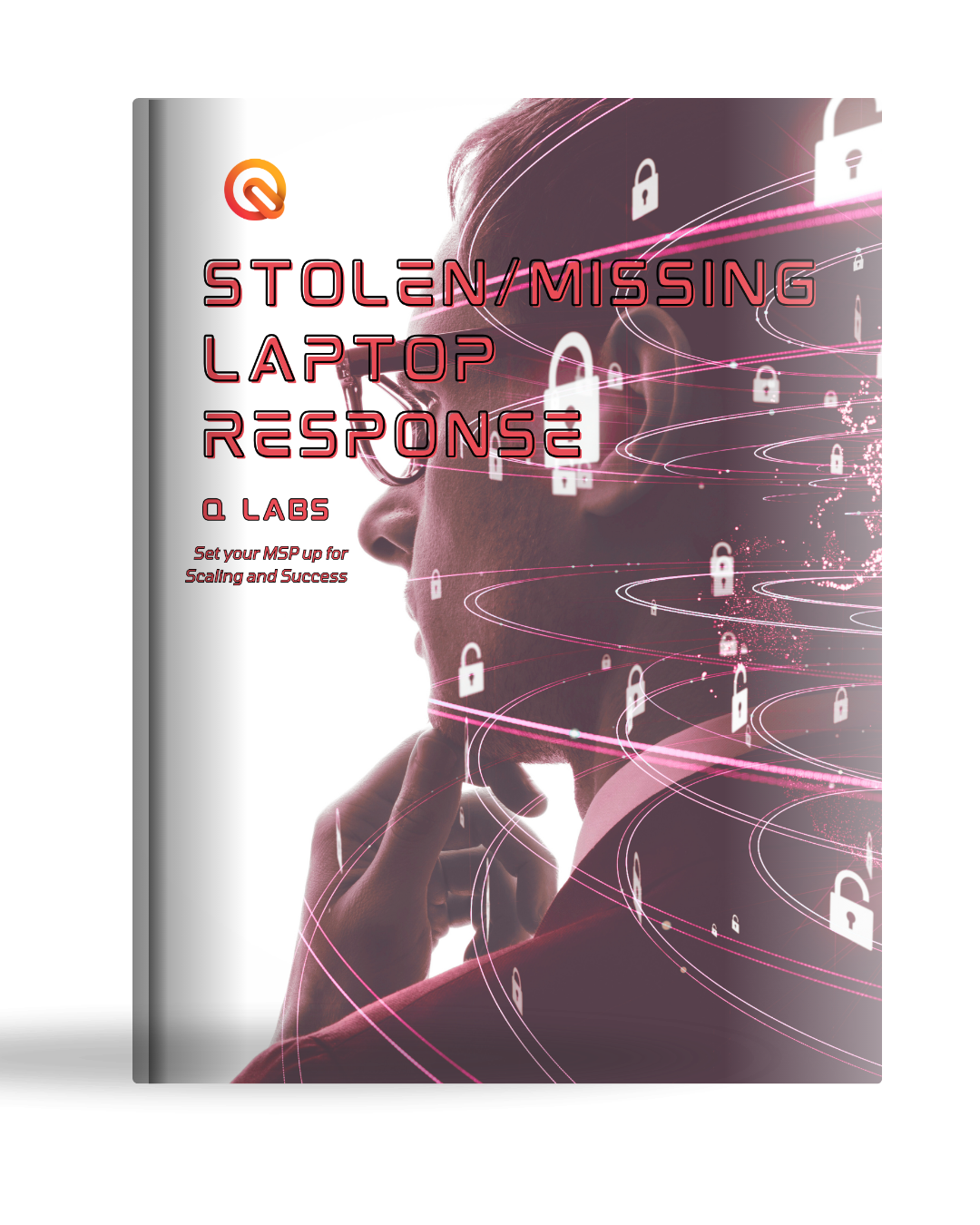

RMM software serves as essential equipment for any MSP operation. This Q Labs guide presents our top recommendations for MSPs, complete with advantages, limitations, pricing details, and selection criteria to equip your mission for success.
MSP Remote Operations: The Need for Superior Tools
Remote and hybrid work arrangements continue to expand, creating additional challenges for MSPs managing client networks and devices. MSP teams must often coordinate services for numerous clients, each with specific technical requirements.
Remote Monitoring and Management (RMM) software allows MSPs to effectively oversee client environments and endpoints regardless of physical location. However, available RMM tools vary considerably. Some focus exclusively on core RMM functions, while others provide comprehensive platforms that combine RMM with network discovery, patch management, helpdesk, billing, and reporting capabilities.
Your MSP’s optimal RMM solution will depend on several factors: your client portfolio, service complexity, technical staff capabilities, and budget constraints. This guide examines the primary considerations for MSPs selecting RMM software and our assessment of top options for 2025.
MSP-Focused RMM Requirements
For MSPs: Comprehensive RMM tools enable technicians to monitor and maintain clients’ IT systems remotely, reducing time spent on site visits. These systems support multitasking by allowing technicians to manage multiple clients simultaneously and automate routine processes, such as gathering network performance data.
Top RMM Solutions: Q Labs Assessment
Our technical team has evaluated eight leading RMM tools favored by MSPs for their distinctive features and advantages.
1. Datto
Overview: Datto primarily specializes in disaster recovery and business continuity solutions but also offers a cloud-based RMM platform specifically designed for MSPs. Datto integrates its RMM solution with PSA tools, creating a unified experience for managing IT operations and client support. The platform features a recently updated UI, which improves user experience and navigation.
Pricing: Custom quotes only
2. N-able
Overview: N-able provides IT management solutions for MSPs with two RMM products:
Strengths: Versatility stands as one of N-able’s key advantages. MSPs can combine various N-able products to create a comprehensive IT management solution.
Limitations: This approach increases costs, as MSPs must pay for multiple subscriptions.
Target users: MSPs and IT departments
Advantages:
Disadvantages:
Pricing: Not publicly disclosed; requires contacting sales for quotes
3. ConnectWise RMM
Overview: ConnectWise RMM provides remote monitoring and management capabilities for MSPs. The software includes network monitoring and alerts, automated patch management and scripting, plus reporting and analytics. MSPs can integrate it with other ConnectWise products to expand functionality.
ConnectWise offers flexibility, but many users report navigation difficulties and a steep learning curve. MSPs with resources to dedicate staff to learning ConnectWise might benefit from its high customization options.
Target users: MSPs and IT departments
Advantages:
Disadvantages:
Pricing: Not publicly available; requires contacting sales
4. NinjaOne
Overview: NinjaOne has gained popularity as an IT management platform with broad capabilities for MSPs to monitor, manage, and support client assets remotely. While NinjaOne receives praise for functionality, some users find the dashboard and navigation confusing. MSP technicians might need additional training to become proficient.
NinjaOne features cover essential MSP needs, including endpoint management, patch management, remote control, helpdesk, and endpoint backup. However, it lacks AI integrations at present.
Similar to most RMM solutions, NinjaOne uses pay-per-endpoint pricing. This structure can quickly become expensive for growing MSPs with expanding client bases.
Target users: MSPs and IT departments
Advantages:
Disadvantages:
Pricing: Not publicly available; requires custom quotes
5. Kaseya VSA
Overview: Kaseya VSA’s IT Complete platform includes an RMM/endpoint management suite that consolidates all functions into a single interface. These include monitoring and alerts, asset and inventory management, security features, and various automated functions: patch management, backups, network monitoring, and ticketing.
The primary drawback reported with Kaseya involves interface complications that can hinder efficient navigation. However, the workflow integrations receive positive feedback for improving operational efficiency.
Target users: MSPs and internal IT departments
Advantages:
Disadvantages:
Pricing: Not publicly disclosed
6. Q Labs
Overview: Q Labs offers a PSA-RMM platform designed with MSP efficiency as the primary mission. Our solution prioritizes ease of use and accessibility, especially for small and mid-sized MSPs managing 300-3000 endpoints.
The Q Labs platform includes remote access capabilities, enabling MSP technicians to manage and troubleshoot client systems from any location. Our comprehensive solution also features network discovery, patch management, and integration with third-party tools for complete MSP environment management.
MSP operatives particularly appreciate our straightforward UI that requires minimal training time, along with our field-ready mobile app for on-the-go management. Our transparent pricing starts at $129/agent per month.
Target users: MSPs with 300-3000 endpoints
Advantages:
Disadvantages:
7. SuperOps
Overview: Launched in 2020, SuperOps provides a combined PSA-RMM platform for MSPs seeking unified operations with AI capabilities. The platform offers real-time remote asset health management, intelligent alerting for actionable issues, and automated ticket routing to improve response times.
SuperOps includes integrated service desk and built-in automation to reduce manual tasks. The platform scales from small to large MSPs and features a current architecture that supports integration with various IT tools.
Pricing: Not specified in source material
How MSPs Should Select RMM Software: The Q Labs Protocol
MSPs must approach RMM software selection methodically. Sales experts estimate the purchase cycle—from research to implementation—typically requires several weeks to months.
Follow these key steps when searching for the optimal RMM solution for your MSP operation:
Step 1: Define MSP-Specific Use Cases
Quality decisions result from thorough planning. Your first task when selecting an RMM tool involves mapping use cases based on your MSP’s client portfolio and technical environment. Consider integration requirements with existing systems.
Some RMM solutions include PSA and helpdesk integrations (like Q Labs) while others do not. Client billing and reporting capabilities prove essential for MSPs, unlike internal IT departments. For MSPs with limited technical staff, automation features become particularly crucial. Clear definition of your specific requirements will guide your evaluation process.
Step 2: Research Available Options
After clarifying your MSP’s needs, examine the available RMM options. Review the solutions in this guide and identify those that align closely with your business requirements.
Step 3: Gather Peer Feedback
Read online reviews from other MSPs to understand real-world performance. Conversations with other MSP owners or technicians can provide honest assessments without requiring personal testing of each platform.
Step 4: Establish Decision Criteria
Create an objective evaluation framework with specific criteria such as multi-client management capabilities, pricing structure, ease of use, onboarding process, mobile functionality, and automation capabilities.
Step 5: Schedule Demonstrations
After narrowing your options to two or three candidates, arrange demonstration calls with vendor representatives. These sessions will showcase primary capabilities and allow detailed questions. Compare RMM products directly against your established criteria.
Step 6: Test Your Top Choice
Many RMM providers offer trial periods either free or at introductory rates. Q Labs, for example, provides a 30-day free trial of our RMM platform. Use this period to thoroughly evaluate the system’s capabilities before financial commitment.
Following this structured approach helps MSPs make sound decisions the first time, avoiding the time and resource costs of switching platforms later.
Attention, MSP operatives! Q Labs understands the unique challenges you face managing multiple clients with limited technical staff. Our PSA-RMM platform was designed specifically for MSPs by veterans of the MSP trenches.
Our mission: provide you with a technical advantage that allows you to support more clients with your existing team. Our intuitive interface reduces training time, while our automation capabilities handle routine tasks without technician intervention.
The Q Labs platform gives you complete visibility across your entire client portfolio through a single console. Whether monitoring network performance, deploying critical patches, or troubleshooting remotely, our tools provide the operational efficiency MSPs require for growth and profitability.
When you select Q Labs, you’re equipping your MSP with intelligence-gathering tools, automated response systems, and field-ready mobile capabilities that transform your technical team into an elite client support unit.


Get exclusive insights on MSP operations, automation strategies, and business scaling tactics delivered straight to your inbox.
No fluff, just actionable SOPs, industry intelligence, and behind-the-scenes expertise from the elite operatives at Q Labs.
What you’ll receive:
📩 Sign up now and transform chaos into clockwork!
